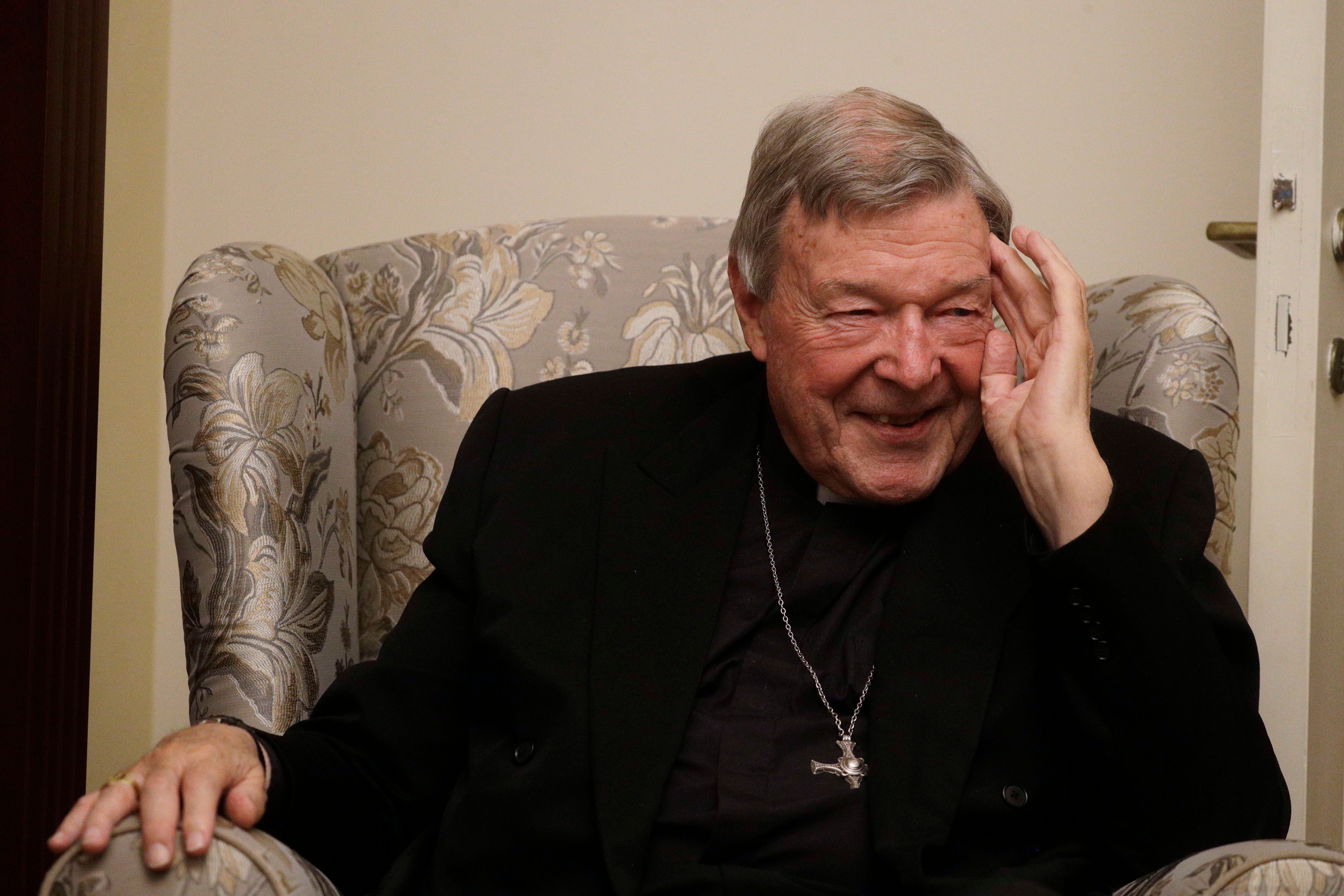Judge refuses to dismiss media charges in Pell trial
A Supreme Court judge in Australia’s Victoria state has dismissed submissions from news media organizations and journalists that there is no case to answer on charges they breached a gag order on reporting about Cardinal George Pell’s sex abuse convictions in 2018

Your support helps us to tell the story
From reproductive rights to climate change to Big Tech, The Independent is on the ground when the story is developing. Whether it's investigating the financials of Elon Musk's pro-Trump PAC or producing our latest documentary, 'The A Word', which shines a light on the American women fighting for reproductive rights, we know how important it is to parse out the facts from the messaging.
At such a critical moment in US history, we need reporters on the ground. Your donation allows us to keep sending journalists to speak to both sides of the story.
The Independent is trusted by Americans across the entire political spectrum. And unlike many other quality news outlets, we choose not to lock Americans out of our reporting and analysis with paywalls. We believe quality journalism should be available to everyone, paid for by those who can afford it.
Your support makes all the difference.A Supreme Court judge in Australia's Victoria state on Friday dismissed submissions from news media organizations and journalists that there is no case to answer on charges they breached a gag order on reporting about Cardinal George Pell’s sex abuse convictions in 2018.
More charges were tossed out in the case against Australian media outlets prosecuted over reporting of Pell’s abuse convictions. But the judge refused to throw out the bulk of the 87 charges of contempt of court for stories published after the cardinal’s guilty verdict.
His child sexual abuse convictions were overturned by Australia's High Court earlier this year and the cardinal is back in Rome.
More than two dozen media organizations, reporters and editors were charged with breaching of suppression orders and other reporting rules in the days following the guilty verdicts.
In a mid-trial ruling on Friday, Justice John Dixon dismissed eight contempt charges against Nationwide News, Sydney radio station 2GB, Queensland Newspapers and the Nine Entertainment-owned Fairfax Media.
But he rejected arguments by 27 media outlets, journalists and editors that they had no case to answer for the remaining 79 charges.
Prosecutors last month dropped 13 charges against News Corp. staff and publications. The trial is scheduled to resume on Jan. 28.
Such suppression orders are common in the Australian and British judicial systems. But the enormous international interest in an Australian criminal trial with global ramifications highlighted the difficulty in enforcing such orders in the digital age.
Pell was convicted on Dec. 11, 2018 of sexually abusing two choirboys in a Melbourne cathedral when he was the city’s archbishop in the late 1990s.
The trial of Pope Francis’ former finance minister and the most senior Catholic to be charged with child sex abuse was not reported in the news media because of the suppression order that forbade publication of details in any format that could be accessed from Australia.
Details were suppressed to prevent prejudicing jurors in a second child abuse trial that Pell was to face three months later.
That second trial was canceled due to a lack of evidence, and Australia’s High Court in April overturned all convictions after Pell had spent 13 months in prison.
No foreign news organization has been charged with breaching the suppression order. The U.S. Constitution’s First Amendment would prevent such censorship in the United States, so attempting to extradite an American for breaching an Australian suppression order would be futile.